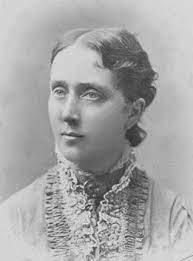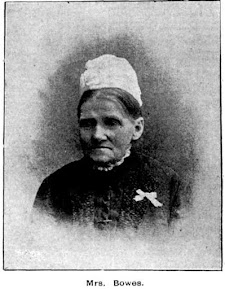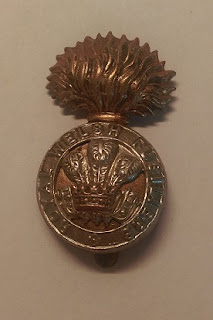Let's hear it for a remarkable woman!
Many formidable and inspirational women who
forged a way forward call Rookwood "home".
There are many who participated in Women's
Suffrage and those who were actively leaders of the movement.
One I wish to honour today, if not completely
forgotten, is a woman we need to be reminded of in regard to the influence she
had to be able to bring about real change for the benefit of women.
So, in honour of International Women's Day, I
hereby bring you.
ROSE SCOTT
Rose was born in October1847, one of eight children to
Helenus Scott and his wife Sarah Anne "Suranna" nee Rusden in the
Singleton area. She lived in barracks at Newcastle where her father was the
Police Magistrate from 1857. Rose was home-schooled and groomed to marry but she
had other ideas. Rose stated that her independent views came about early and were
cemented by a reading of Shakespeare's “The Taming of the Shrew”. From then the
play shaped her attitudes to men and marriage. She often took the steamer to
Sydney to visit relatives and spent a great deal of time visiting her cousin,
David Scott Mitchell, whose vast collection of books, etc. upon his death, formed
the basis of the NSW State Library. (He also calls Rookwood "home" but his wonderful story will be the subject of another blog later down the
line).
A young Rose Scott - Wikipedia
The poor health of her mother kept her occupied
at home. When her father died in 1879, she inherited £500 per annum and sole
care of her mother. After her beloved sister's Gussie's death in 1880, she
adopted her 2-year-old son, Helenus Hope "Nene" Scott Wallace (known
as Harry) and moved him and her mother to Sydney.
From 1882, Rose began a weekly Friday evening
salon in her home, "Lynton" in Woollahra. She invited Politicians,
Judges, Philanthropists, Artists and Poets for discussions on matters of the
day. In 1889 she helped to found the Women's Literary Society which grew into
the Womanhood Suffrage League in 1891.
After her mother's death in 1896, Rose
diversified her activities. Her interest in votes for women led to intense
scrutiny of the position of women in society. She found that young girls were
working in shops from 8am until 9pm on ordinary days and until 11pm on
Saturdays. In order to effect change she invited some of these girls to her
home on Sunday afternoons to describe their working conditions to her gathered
audience of Judges and Politicians. This led to the drafting of the Bill that
became the Early Closing Act of 1899.
Commemorative scarf - author's own
Other reforms advocated included the appointment
of Matrons at Police Stations and women Inspectors in factories and shops.
Scott founded the Women's Political Education
League in 1902 and was its President until 1910. The League campaigned for the
raising of the age of consent to 16. Rose worked with Sir Charles Mackellar
offering him tactical advice for the Infant Protection Act (1904) which allowed
an unmarried pregnant woman to sue the putative father for pre-natal expenses,
maintenance for six months after the birth and for the child until adolescence.
Other post-suffrage feminist reforms she
participated in included the Family Maintenance and Guardianship of Infants
(1916), Women's Legal Status (1918) and First Offenders (Women)1918 Acts.
All her life Rose Scott worked for measures to
reduce men's power over women. Sometimes she went perhaps too far the other way, for
instance, stepping aside as the President of the NSW Ladies' Amateur Swimming
Association in 1911 when she clashed with the swimmer, Fanny Durack, over her
competing at the 1912 Stockholm Olympic Games. Scott objected to the Olympics
on pacifist grounds as well as women appearing in competitions when men were
present.
Rose Scott later in life - Dictionary of Sydney with thanks
She advocated mobility for women and some
independence by seeking women's access to Public Office and provision of public
space for women's uses (such as rest room and parcel cloakrooms).
Rose Scott died of cancer in April 1925 and was
buried in the Anglican Section of the Cemetery. She was a great believer in
cremation and active in the Cremation Society of NSW that had been formed in
1908. In her will she requested that if she should die before the Rookwood
Crematorium was opened, she should be buried and once operational, have
her body be exhumed and cremated. Her wish was granted later that year after
the Crematorium's official opening.
Rose Scoott's marker at Rookwood Crematorium - photo author's own
There are many articles and vast chapters of
books devoted to Rose Scott. A simple Google search will produce many. I have
used that search engine as well as consulting a number of books; one being
"Book Life - The life and times of David Scott Mitchell" by Eileen
Chanin available still (I believe) from the NSW State Library. A great,
intensive read.
If you have any comments about this blog please
include them below or at the Facebook group found under
rookwoodcemeterydiscoveries
or send me a message at
lorainepunch@gmail.com
Until next week!







What a wonderful story of a determined Lady
ReplyDeleteYes, a very formidable woman. We have to thank her more for her achievements
Delete